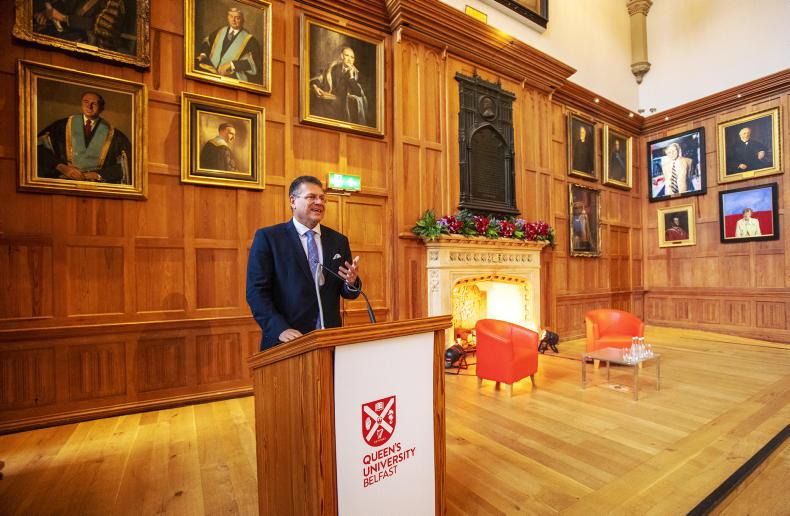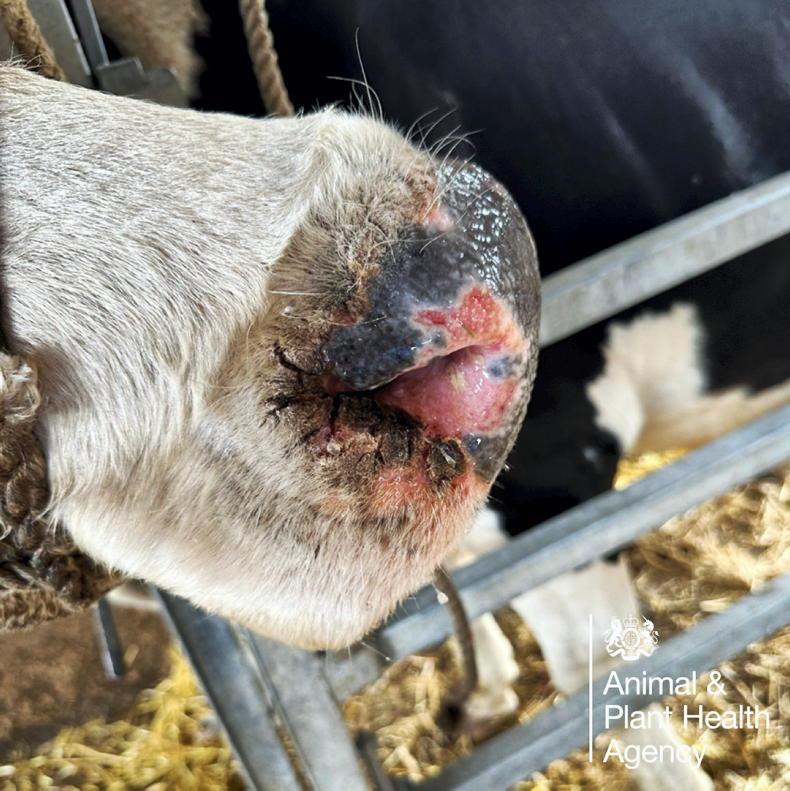Thursday’s lunch in Brussels where European Commissioner Maros Sefcovic will host his UK counterpart Lord David Frost will be a first chance to see if there is any possibility that there will be a meeting of minds on the Northern Ireland (NI) Protocol.
It comes at the end of a week when Lord Frost adopted a belligerent approach in a speech in Portugal, while Commissioner Sefcovich presented what the EU consider a solutions-based approach on the operational issues around the protocol, including an accommodation for sausages from Britain entering Northern Ireland, one of a number of grievances.
There is a feeling in Brussels that the EU is coming to the end of the road in trying to make the protocol work.
Bending the structures
It believes that it is bending the structures to the limit to facilitate trade between Britain and NI, while minimising risk to the EU single market via the border on the island of Ireland.
Reports that EU member states are asking for the preparation of a contingency response should the UK reject the EU proposals is adding to tension that has already built up in several member states over fishing access to UK waters.
Suspension of TCA
If the EU considers the UK in violation of the protocol, it may decide to impose targeted sanctions against the UK in response while an arbitration process got under way.
The ultimate sanction is suspension of the Trade and Co-operation Agreement (TCA) itself, which would be a return to the nightmare scenario feared by Irish farmers when the possibility of a no-deal Brexit was very much on the table, as recent as this time last year.
The TCA may be a bare bones agreement, but it at least enables no tariff no-quota trade to take place between Ireland and the UK and also, very importantly, cross border on the island of Ireland.
That means milk and lambs can flow south for processing, while cattle, beef carcases and pigs go the opposite way.
No TCA would mean no provision for tariff-free trade between the UK and Ireland - and NI is part of the UK.
Exposure of Irish beef
Arguably the biggest nightmare - if there was no TCA in place - faces the Irish beef sector.
Unlike the other sectors of Irish agriculture, it doesn’t have options for volume beef sales outside the UK anything remotely like the same value.
If full tariffs were applied, Irish beef would carry €675m annually based on 2019 exports to Britain. Based on current values, this figure is likely closer to €1bn, a cost that would collapse the Irish beef price.
In the longer term, Irish beef exports to Britain will inevitably be weakened, as Australia and New Zealand become established in the market in direct competition with Irish beef as free-trade deals take effect.
That, in time, may have the effect of death by 1,000 cuts on the Irish beef industry, but if the TCA was to collapse or be suspended, then the effect would be sudden and brutal.








SHARING OPTIONS